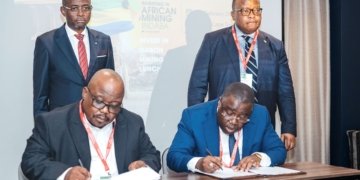BRAZZAVILLE, Congo (BG) — Experts from the World Health Organization (WHO) and Africa Centres for Disease Control and Prevention (Africa CDC) met last week with representatives from 17 African countries in Brazzaville, Republic of Congo, to help develop vaccination preparedness and deployment plans for mpox, according to a statement.
Mpox (monkeypox), an infectious disease caused by the monkeypox virus, presents symptoms like a painful rash, swollen lymph nodes, and fever.
Most patients recover fully, but severe cases can occur. As mpox cases rise in Africa, with more than 11,000 confirmed cases reported as of November 6, 2024, WHO and Africa CDC have emphasized the importance of efficient vaccine usage across the continent amid limited supply.
Targeted Vaccine Deployment
During the November 5-7 meeting, over 120 participants discussed identifying hotspots and deploying targeted vaccination strategies for high-risk populations.
WHO’s Regional Director for Africa, Dr. Matshidiso Moeti, highlighted the urgency, stating, “With limited vaccine supplies, countries must develop highly targeted deployment plans, guided by local epidemiology.”
The event included partners from Gavi, UNICEF, the U.S. Centers for Disease Control and Prevention (CDC), and the U.S. Agency for International Development (USAID), with support from Canada.
Attendees received updated vaccination guidelines and tools to craft deployment plans.
Since the WHO added the MVA-BN vaccine to its prequalification list on September 13, 2024, and introduced an Access and Allocation Mechanism (AAM), Africa has received 280,000 vaccine doses.
Initial distribution has begun in the Democratic Republic of the Congo (DRC) and Rwanda, with over 50,000 doses administered to date.
Ongoing Challenges and Support
The joint effort by WHO, Africa CDC, and other partners through the Continental IMST extends beyond vaccinations, covering diagnostics, case management, risk communication, and community engagement.
While countries such as South Africa, Guinea, Cameroon, and Gabon have transitioned to the ‘controlled phase’ after six weeks without new cases, 14 countries still face active outbreaks.
The outbreak epicenter remains the DRC, where over 38,000 suspected cases and more than 1,000 deaths have been reported this year.
“African countries’ swift action on targeted vaccination reflects a strong commitment to protect the most vulnerable,” noted Africa CDC Director General Dr. Jean Kaseya.
The regional meeting focused on support for the following countries: Burundi, Cameroon, Central African Republic, Côte d’Ivoire, Democratic Republic of the Congo, Gabon, Ghana, Guinea, Liberia, Kenya, Nigeria, Republic of the Congo, South Africa, Tanzania, Uganda, Zambia and Zimbabwe.
SOURCE : WHO




























